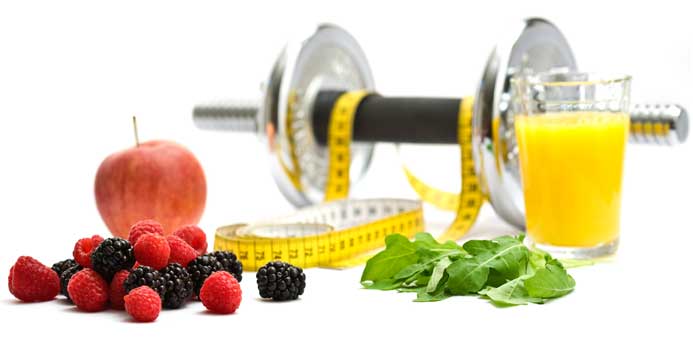If you want to make over your health, refrigerator, and pantry, then make a note of these 12 staples that will get you eating right in the New Year.
1. Assorted Whole GrainsCereals, pasta, rice, pita bread, and other grains made from whole grains are higher in vitamins and minerals than their white counterparts. Additionally, whole grains contain more fiber which may reduce constipation, help with weight management, reduce cholesterol levels and lower risks for heart disease, obesity, and type 2 diabetes.
2. Lean MeatsIf you eat meat, choose lean varieties with 0-3 grams of fat per ounce. Examples include ground round, sirloin, salmon, tilapia, trout, tuna, Canadian bacon, pork loin, tuna in water, turkey pepperoni, and poultry without skin.
3. Low Fat or Fat Free Plain YogurtPlain yogurt contains less sugar and is more versatile than flavored yogurt. Use the plain yogurt as a sour cream or mayonnaise substitute, or jazz it up with fruit. Yogurt consumption has been linked to reducing issues associated with allergies, inflammatory bowel disease, irritable bowel syndrome, hypertension, high blood pressure, high cholesterol, ulcers, diarrhea, and some bacterial infections. Because yogurt contains beneficial bacteria, most people who are lactose intolerant are able to tolerate yogurt.
4. Frozen Fruits and VegetablesWhile fresh produce is great, frozen is usually cheaper and lasts longer. After produce is picked, it begins to lose nutrition. Frozen produce is typically flash frozen right after it is picked, which preserves the nutrients until you are ready to eat it. Be sure to choose frozen produce with no sauce, cheese, salt, or syrups added.
5. Reduced Fat CheeseCheese is found in many foods and recipes; it's tasty! However, it can be high in fat and calories. Instead of giving it up completely, buy reduced fat cheese - you'll lose the fat without losing the flavor. Look for cheese that has 4g of fat or less per ounce/serving.
6. EggsEggs are a versatile and inexpensive quality protein source loaded with vitamins, minerals, and antioxidants. Limit egg yolks to one a day. Use just the egg whites if you want to reduce calories.

Nuts pack a nutrient punch in a tiny package. They contain fiber, omega-3 fatty acids, unsaturated fats, plant sterols, vitamin E, L-arginine, potassium, and magnesium. Aim to eat one ounce daily.
9. BeansBeans are another versatile and inexpensive protein. They have been linked to improving blood sugar levels in people with diabetes, reducing the risk of heart disease and hypertension and assisting in weight management.
10. Marinara SauceUsed in spaghetti, lasagna, pizza, and more, tomato-based sauce contains various vitamins, minerals, fiber, and antioxidants which can reduce your risk for cardiovascular disease and help protect your skin from sun exposure. Look for the lowest sodium content, aim for 400mg or less.
11. Healthy SnacksRecent research shows that eating 3 regular meals and 2 snacks throughout the day may help with weight management. These snacks, however, should be small and healthy. Consider combinations such as a low-fat part-skim milk mozzarella cheese stick with a small piece of fruit or a small parfait made with plain yogurt, fruit, and a few nuts.

If you haven't experimented with spices and/or herbs in the past, then this is your year! These add loads of flavor which will prevent you from piling on the salt or butter, thereby lowering your fat and calorie intake.
Mandy Seay is a bilingual registered and licensed dietitian who holds both a bachelor's degree in nutrition and in journalism. After gaining 30 pounds while living abroad, Mandy worked to lose the weight and regain her health. It was here that she discovered her passion for nutrition and went on to pursue a career as a dietitian. Mandy currently works as a nutrition consultant and freelance writer in Austin, Texas, where she specializes in diabetes, weight management and general and preventive nutrition. She recently published her first book, Your Best Health, a personalized program to losing weight and gaining a healthy lifestyle. Please visit Mandy's website at Nutritionistics.com.




